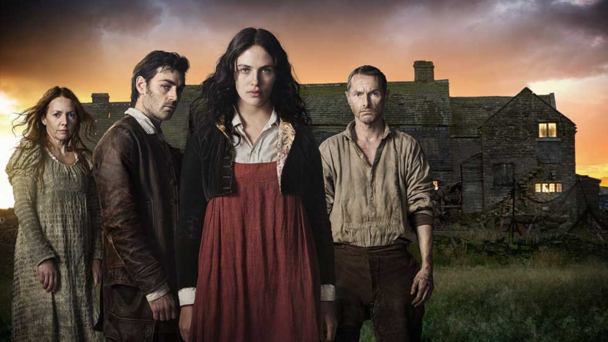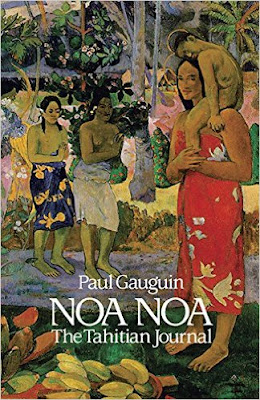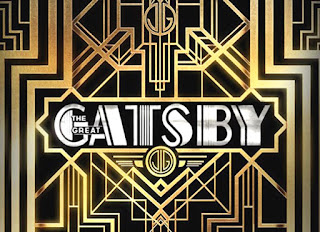Jamaica Inn: Some Thoughts on the Gothic
I came to this wonderful book in a convoluted way. A few months ago, I set a google alert for Downton Abbey, because, let's be honest, who doesn't want to see who Mary Crowley marries? Anyway, the alert turned up a lot of interesting articles about the show, but it also turned up a few articles about Jessica Brown Findlay. Findlay played Sibyl Crowley on the show, but she left in season three to explore other acting opportunities.
I'm so glad she did.
A little while ago, I read an article about Jessica Brown Findlay's new role in BBC One's TV series, Jamaica Inn. I was like, 'hm, that sounds interesting', and proceeded to look up the show on Wikipedia, whereupon I learned that Jamaica Inn was actually based on a book of the same title. I have since read that book and let me just say:
It was amazing.
Maybe it's just that I haven't read a book for pleasure in a while, but I can honestly say that Jamaica Inn was one of the best written, most suspenseful, most captivating novels I have ever read. I loved every second of it. Actually, I read it in two days, completely ignoring all my homework and exams I might add.
Jamaica Inn is the story of Mary Yellen, an orphan farm girl who goes to live with her aunt and uncle, Patience and Joss Merlyn. Her uncle is the land lord of Jamaica Inn, a watering hole for the 'ner do wells of the Cornish moors. Mary quickly realizes that her uncle is a wrecker, a man who lures ships to their doom in order to steal their cargo. Along the way, Mary falls in love with Joss's brother, Jem, a horse thief. I don't want to give away too many spoilers here, but let me just say, the ending is pretty epic.
Anyway, what made this book so intriguing was that, while it was pretty obvious who the good guys and bad guys were (with one notable exception), the novel didn't paint a black and white picture of crime. There's a sense of moral ambiguity. Yes, smuggling is wrong, but where is the line drawn? What makes Joss Merlyn so different from the people who buy his stolen goods? Are the magistrate who turn a blind eye as murderous as the wreckers? Was Joss, born into a rough family of criminals, destined for his fate or is it a case of nature vs. nurture? Jem, a sympathetic character in the book, is a horse thief; what makes him better than his brother? Where is the line between a redeemable person and a lost soul? Is Mary, who defended the Merlyns for the sake of her aunt, as culpable as the rest?
While there is little doubt that Joss and his crew are a pack of fiends, these questions remain pertinent to the story. The reader is given the sense, and rightly so, that Joss isn't wholly responsible for his actions. Does this excuse him? While, in the end, the novel offers Joss no pardon, the reader is still left with the feeling that the outcome of the story wasn't really in his control.
This question is complicated by the end of Mary's story. In the final pages of the novel, Mary chooses to leave Cornwall with Jem Merlyn instead of returning to her home town to be a farmer. Note, that this is after Jem tells Mary that Merlyn men never treat their women well, that he will be a wanderer for the rest of his life, and, generally, that he's a bad person and isn't going to change. Yet, for some reason, Mary, the moral exemplar of the novel, chooses to go with him. Don't get me wrong, it's romantic and all, it just doesn't make any sense. Can Jem be a good person despite the fact that he's a criminal? Is Mary a fool for trusting him? We don't get the answers to those questions because the novel ends, but I hope someone writes some Mary/Jem fan fiction so that we can all find out.
Just readin'
A little while ago, I read an article about Jessica Brown Findlay's new role in BBC One's TV series, Jamaica Inn. I was like, 'hm, that sounds interesting', and proceeded to look up the show on Wikipedia, whereupon I learned that Jamaica Inn was actually based on a book of the same title. I have since read that book and let me just say:
It was amazing.
Maybe it's just that I haven't read a book for pleasure in a while, but I can honestly say that Jamaica Inn was one of the best written, most suspenseful, most captivating novels I have ever read. I loved every second of it. Actually, I read it in two days, completely ignoring all my homework and exams I might add.
Jamaica Inn is the story of Mary Yellen, an orphan farm girl who goes to live with her aunt and uncle, Patience and Joss Merlyn. Her uncle is the land lord of Jamaica Inn, a watering hole for the 'ner do wells of the Cornish moors. Mary quickly realizes that her uncle is a wrecker, a man who lures ships to their doom in order to steal their cargo. Along the way, Mary falls in love with Joss's brother, Jem, a horse thief. I don't want to give away too many spoilers here, but let me just say, the ending is pretty epic.
Anyway, what made this book so intriguing was that, while it was pretty obvious who the good guys and bad guys were (with one notable exception), the novel didn't paint a black and white picture of crime. There's a sense of moral ambiguity. Yes, smuggling is wrong, but where is the line drawn? What makes Joss Merlyn so different from the people who buy his stolen goods? Are the magistrate who turn a blind eye as murderous as the wreckers? Was Joss, born into a rough family of criminals, destined for his fate or is it a case of nature vs. nurture? Jem, a sympathetic character in the book, is a horse thief; what makes him better than his brother? Where is the line between a redeemable person and a lost soul? Is Mary, who defended the Merlyns for the sake of her aunt, as culpable as the rest?
While there is little doubt that Joss and his crew are a pack of fiends, these questions remain pertinent to the story. The reader is given the sense, and rightly so, that Joss isn't wholly responsible for his actions. Does this excuse him? While, in the end, the novel offers Joss no pardon, the reader is still left with the feeling that the outcome of the story wasn't really in his control.
This question is complicated by the end of Mary's story. In the final pages of the novel, Mary chooses to leave Cornwall with Jem Merlyn instead of returning to her home town to be a farmer. Note, that this is after Jem tells Mary that Merlyn men never treat their women well, that he will be a wanderer for the rest of his life, and, generally, that he's a bad person and isn't going to change. Yet, for some reason, Mary, the moral exemplar of the novel, chooses to go with him. Don't get me wrong, it's romantic and all, it just doesn't make any sense. Can Jem be a good person despite the fact that he's a criminal? Is Mary a fool for trusting him? We don't get the answers to those questions because the novel ends, but I hope someone writes some Mary/Jem fan fiction so that we can all find out.
Just readin'




Comments
Post a Comment